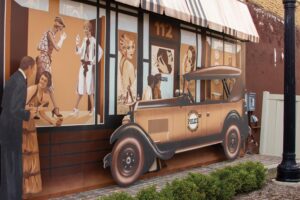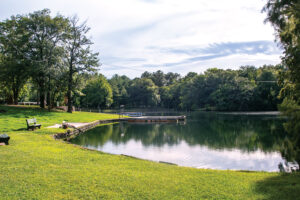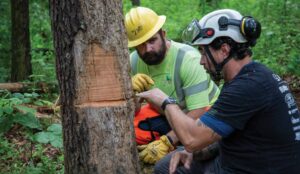Joseph Priestley, the 18th century English scientist who discovered oxygen, also discovered how to carbonate water. On tasting it, he wrote about how it seemed to refresh him. Within a few years, effervescent water, often with minerals dissolved into it as an aid to digestion and general health, was being marketed to the public.
Excel Bottling history
A hundred years later in America, almost every pharmacy had its own soda fountain where the pharmacist could dispense carbonated water. Flavored syrups, often of the pharmacist’s own creation, were added to enhance the enjoyment – and the sales of the water. Soon, enterprising businessmen realized that bottling these formulations allowed distribution far beyond the pharmacy, and so America’s soft drink industry was born. It produced giants like Coca-Cola and Pepsi, but it also produced thousands of “mom and pop” bottling companies, small enterprises that served their town, city or community. Some dealt in strictly local brands, while others, under license, produced a regional or national brand in addition to their own. During the 1960s and 70s, massive national marketing and promotional campaigns by Coke and Pepsi drove most of these small bottlers out of business – most, but not all.
One bottler that survives, and thrives, is Excel Bottling of Breese. On the corner of South Broadway and Clinton in a modest brick building, it has been bottling soda since 1936. That was the year Edward “Lefty” Meier and his wife Catherine took the reward money that Lefty had earned by helping to capture a bank robber in Germantown, bought a used bottling machine and installed it in a portion of their home that had been used as a dry goods store. According to Bill Meier, Lefty’s grandson and current general manager of Excel Bottling, it was a gamble.
He explains, “There were already two bottlers in town, one bottled a chocolate drink. My grandfather had actually worked for him and another who bottled soft drinks. The guy who ran the soft drink plant came by and told my grandfather, ‘You’re never going to make it; there isn’t enough business for both of us. You will be out of business in a couple of years.’ Then in a couple of years that guy came by and said, ‘I was wrong and I’m the one who is closing.”’
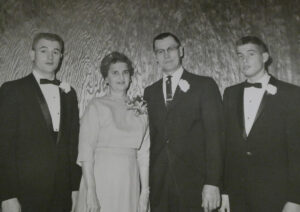
Excel has always been a family business. Lefty and Catherine ran it for years, and when Lefty’s health deteriorated, their son Paul came home to take over. But Catherine, who passed away at age 99 in 2009, continued to keep the books by hand until she was 97. Today, Paul’s children oversee day-to-day operations – Bill is general manager, David is sales manager and Kathleen is inside sales manager. The books are now done on computer. Even though the bottling equipment has also modernized, all Excel bottled sodas are still made with pure cane sugar, and most of them are still bottled in returnable glass bottles.
Cane sugar was once the sweetener for all sodas, but that changed in the 1970s with the introduction of high fructose corn syrup (HFCS). HFCS was cheaper than cane sugar and easier to handle and store. So, many bottlers began mixing it with the sugar, and soon they were using HFCS exclusively. In spite of the economic advantages, Excel has stuck with cane sugar.
Meier explains, “I don’t have a problem with those who use high fructose corn syrup, but we’re committed to never use it. Our name is Excel. Our goal is to make an excellent product, and we just feel that cane sugar makes a better product. If you compare a Ski soda made with high fructose corn syrup with one of our bottles made with sugar, ours just has a fuller more robust taste.”
Why has Excel stayed with returnable bottles? Meier says, “On a local level, it is a really green packaging – the cleanest, most efficient thing you can do is to use that container again. You don’t have to worry about adding to the landfill or the cost of recycling because we sanitize it and reuse it.”
Returnable bottles are not without their issues. The life of an average returnable bottle, allowing for breakage, chipping, non-returns, etc., is estimated between 20 and 30 uses. However, reading the codes on the bottom of many of Excel’s bottles reveals that they were made in the 70s, 60s and even some from the 50s.
While most of local sales are in returnable bottles, economics and other factors have led Excel to offer their sodas in non-returnable bottles and in 20-ounce plastic bottles. Still, most locals and some long-distance customers stick with those in returnable glass bottles. They insist that the soda just tastes better out of glass and buying returnables just makes good economic sense. A case of soda in non-returnable bottles is $14, the same soda in returnable bottles, after deposit, is $8.50.
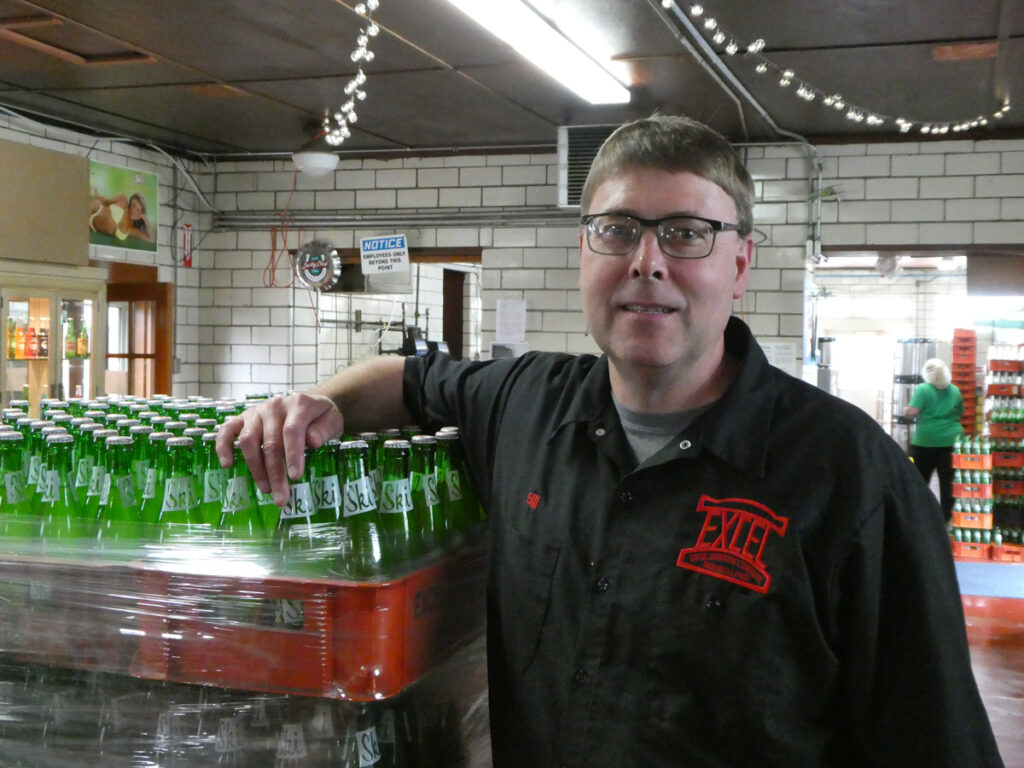
Like most bottlers of their day, Lefty and Catherine began with their own brands and expanded their product line by purchasing the franchise to produce other brands. In the late 1930s, they began to bottle Life, a citrus-based beverage, and Frostie root beer. They added Lucky Club Cola, a St. Louis-based beverage in the 1940s, and in 1961 Lefty acquired the franchise that was to change the soft drink habits of southern Illinois.
Ski and specialty sodas
In 1956, Double Cola Bottling Company got a new formulation from a bottler in Wisconsin, and in 1958, they trademarked the soda under the name Ski.
Ski is a citrus-based soda, and citrus-based sodas were nothing new. 7 Up and Upper 10 had been around for decades. Coca-Cola had just introduced Sprite, and Excel had been making Life, its own citrus soda, since the late 30s. While all of these sodas were lemon-lime based, Ski was lemon-orange based. For some reason, southern Illinoisans took to it like a duck to water. Today, it has achieved near cult status in Clinton County and surrounding counties.
How popular is it? Every business with a soda fountain, local groceries and even some area Walmarts carry Ski. Some area residents will tell you that children of the area go directly from mother’s milk to Ski and will add, “I’m only half joking.” There are even a number of local folks who say they start their day with a Ski instead of coffee.
On Saturday morning, there’s usually a line of cars on Clinton Street as “the regulars” come in to trade their empties for a fresh case of Ski. A local car dealership makes a weekly run to pick up several cases for its mechanics, and Excel’s Marketing Manager Carla Baublitz jokes that she took the job to have easy access to Ski.
In terms of sales, Bill Meier says that if you factor in the bagged syrups for fountains, Excel sells about one million cases of soda a year. Of those, approximately 400,000 are Ski.
Excel offers 18 sodas grouped into four lines, and Ski is part of Excel’s Nostalgia line. Other lines include Excel Originals, Million Dollars and a Taste of Breese.
The Taste of Breese line, developed about seven years ago, was Baublitz’s brainchild. “I always thought Breese sounded refreshing, and it tells you where it comes from. So I sketched out a little cartoony logo and took it to Bill,” she explains. “Well, actually, like a little kid, I put it on his refrigerator.”
Meier picks up the story, “Carla’s idea was to use our Life soda as a base to make some flavorful sodas with no caffeine and a little less sugar. For our first one, we used real blueberry extract, and that became Blueberry Breese; then we added Strawberry Kiwi Breese and Cherry Breese. All are good, but our Blueberry is still the most popular.”
From time to time, Excel bottles a specialty soda. In 2017, a few months before the eclipse occurred, they came out with Darkest Hour Black Cherry. Meier says, “It came out and people are saying, ‘this is great,’ and they are ordering it for school parties and eclipse viewing parties. Then one Walmart called, and then 30 Walmarts wanted it. NBC’s Today Show was doing a show on eclipse-related products, so we were featured on national television. The only bad thing was we weren’t prepared. We would bottle it, sell out, and hustle to get more labels and bottles; bottle it, sell out and start again. We were shipping it out of here in trailer truck loads. For a little while, it practically took over our bottling operation.”
Looking ahead
While Excel began with only two employees on a machine that turned out about a bottle a minute, today it employs about 30 people, and the line runs at 200 to 300 bottles a minute. But in many ways, things are just the same. There is a family atmosphere, where an employee’s name is more important than the title, and a customer can step in off the street and buy a single bottle of Ski, a case or even several cases.
In a time when everyone wants to be the biggest and best, Bill Meier’s outlook is refreshing. “Our goal is not to be a national soda company,” he says with a pause and a smile. “It’s to be a regional soda company and to stay in business.”
Excel now delivers to all southern Illinois and in St. Louis and St. Charles County, Missouri, but its region may be growing. St. Louis Barbeque chain Sugarfire Smokehouse carries their products and has opened a restaurant in Indianapolis. So, a whole new group of people are going to be exposed to Excel sodas and beer.
Catherine Meier was once quoted as saying, “Eddie and I built our business selling one case at a time.” That’s how it was 82 years ago, and that’s how it is today.
The King of Ski
Dairy King, currently owned by Brad and Michele Maue, has been serving Breese for 67 years, and for more than 40 of those, Ski has been featured on their soda fountain. It was the popularity of the Cherry Ski that prompted Double Cola (and Excel) to begin bottling Cherry Ski in 1996.
In addition to cherry, Dairy King offers orange, grape, blue raspberry and lime – a veritable rainbow of flavors. It also offers a Rainbow Ski, which is all of those flavors combined, and it’s one of the biggest sellers. Need more fruit in your diet? Dairy King will add your choice of strawberries, cherries, black raspberries, pineapple or even a spritz of chocolate to your Ski.
With a variation for every palate, just how much Ski does the Dairy King sell in a year? Between its two locations, Breese and Trenton, last year’s total was a whopping 700,000 drinks, that’s enough to provide every man, woman and child in Breese (population 4,511) with 155 cups of Ski.
And they also brew
In 2012, the Meier family created Excel Brewing Company and began crafting beer. Six years later, they’ve made a name for themselves with a wide array of ales, lagers and seasonal and specialty beers. In a nod to their heritage, one of their signature beers is Lefty’s Lager.



